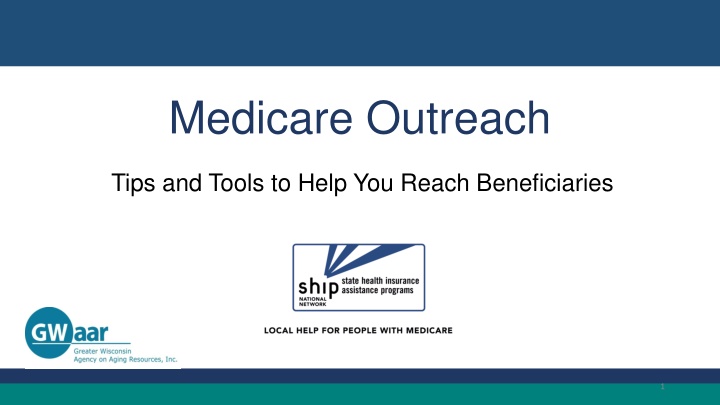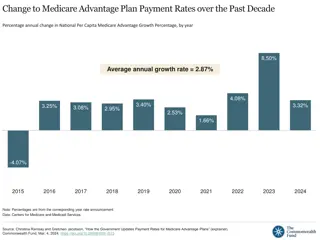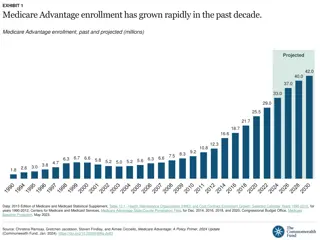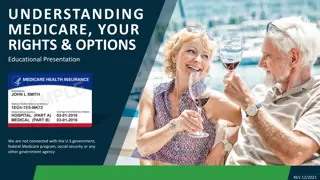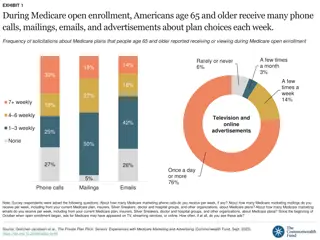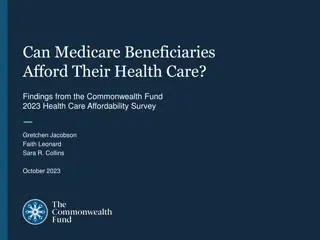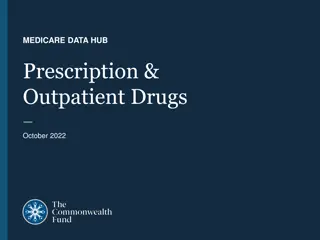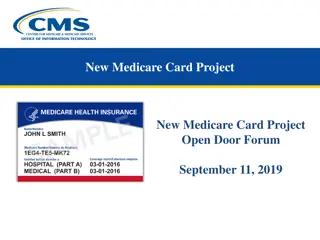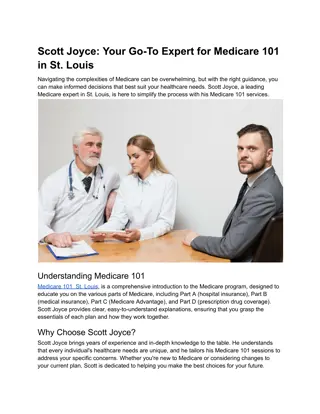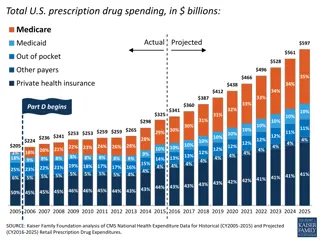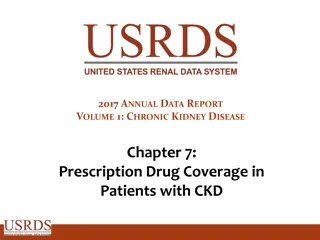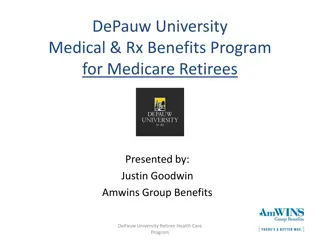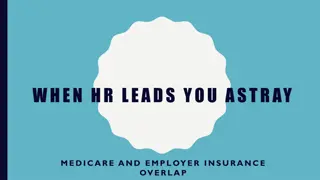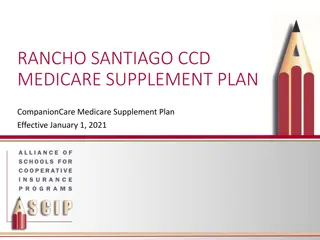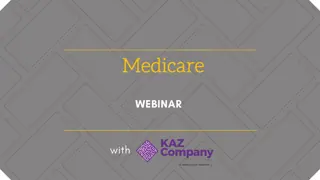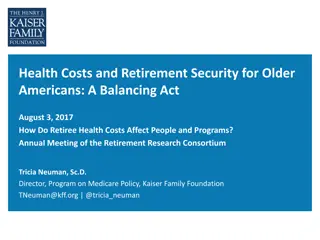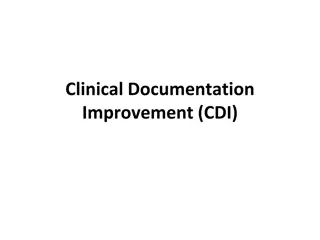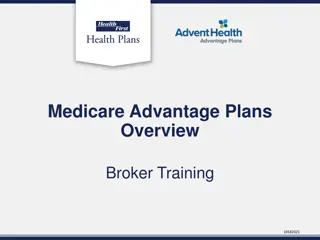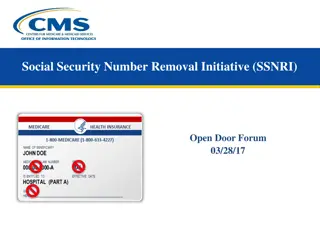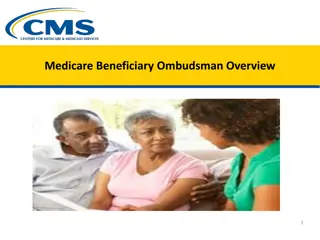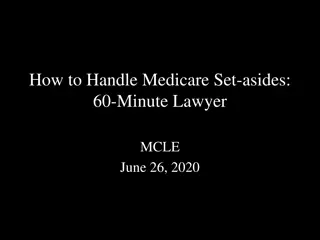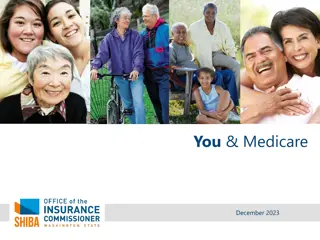Medicare Outreach Tips and Tools for Beneficiary Engagement
This content provides insights into Medicare outreach strategies, including reasons for outreach, the role of a Medicare outreach coordinator, best practices, and partnering opportunities. Learn about funding options, resources, and focus areas to enhance outreach efforts and support Medicare beneficiaries effectively.
Download Presentation

Please find below an Image/Link to download the presentation.
The content on the website is provided AS IS for your information and personal use only. It may not be sold, licensed, or shared on other websites without obtaining consent from the author.If you encounter any issues during the download, it is possible that the publisher has removed the file from their server.
You are allowed to download the files provided on this website for personal or commercial use, subject to the condition that they are used lawfully. All files are the property of their respective owners.
The content on the website is provided AS IS for your information and personal use only. It may not be sold, licensed, or shared on other websites without obtaining consent from the author.
E N D
Presentation Transcript
Medicare Outreach Tips and Tools to Help You Reach Beneficiaries 1
Reasons for Outreach Inform public about: Medicare-related assistance you can provide low-income benefit programs Medicare preventive benefits and health promotion programs Two federal grants provide funding for Medicare outreach: MIPPA Grant SHIP Grant 2
Role of Medicare Outreach Coordinator Provide support and assistance Bi-monthly trainings Provide resources/materials for outreach Maintain webpage with resources, trainings and helpful links 3
Agenda Best Practices Outreach materials for use at local level How to access materials 4
Wisconsins Best Practices Four Focus Areas: Staffing Community Partnerships Outreach to Beneficiaries Training 5
Best Practices 1. Staffing: Provide regular EBS office hours in outlying and rural areas (Under-served neighborhoods). Dedicate adequate staff hours to ensure availability throughout your service area. Consider use of volunteers to expand outreach. 6
Best Practices 2. Community Partnerships: Potential Partners: Any professionals and agencies that come into contact with Medicare beneficiaries Educate about Medicare and Medicare related programs Provide resources Explain when/where to make referrals Seek opportunities to set up outreach activities/presentations 7
Best Practices Important Partners Include: Social Security Admin office Pharmacies Libraries* Churches & Interfaith Programs Food Pantries Hospitals & Clinics Senior Centers/Dining Sites Senior & Low-income Housing 8
Best Practices Important Partners (cont.): Employers and union groups Health Promotion Programs Other benefit programs Homestead Tax/AARP/VITA Tax sessions FoodShare (SNAP) Low Income Heating Assistance Stockbox, Hunger Task Force Public Health Senior Medicare Patrol Service Clubs/Community Organizations (Kiwanis, Rotary) Veterans Administration Office 9
Best Practices Important Partners (cont.): Be sure to reach out to community partners serving minorities in your service area! Hispanic/Hmong/Native American/Other community centers Clinics that serve greater number of minorities or specific minority group Churches that serve particular minority group Grocery store serving particular minority group 10
Best Practices 3. Outreach Directly to Beneficiaries: Virtual Welcome to Medicare Presentations* Various times/locations around county Other presentations on Medicare related programs at various locations throughout county Marketing plan/advertise: radio, tv, newspaper, newsletter articles Promote word of mouth outreach Give your card, brochure, etc. to people you have helped and encourage them to share 11
Best Practices 3. Outreach to Beneficiaries:-- Incorporate outreach directly to low-income minorities: Presentations Consider co-presenting with trusted staff member from the specific community. Outreach Materials Find on Medicare Outreach and Assistance page of GWAAR website: Hard-to-Reach Communities Brochures, inserts, flyers, posters, articles Media Outreach Hispanic or Hmong Radio stations Newspaper targeting minority community 12
Best Practices 4. Training Colleagues: All ADRC and Aging Unit staff who work w/ target audience I & A specialists Nutrition site managers Health promotion coordinators--collaboration Attend Income Maintenance staff meetings Attend coalition meetings (I-team, Caregiver coalitions, others) 13
Medicare Outreach Materials MIPPA brochure (inserts) Preventive Services Chart Posters Medicare Placemat Prevention and Wellness Articles for newsletters/church bulletins Brief Program Descriptions (Help educate community partners about Medicare related programs) Video outreach 14
Medicare Outreach Materials Three-fold brochure ADD YOUR CONTACT INFO HERE 15
Medicare Outreach Materials Inside of the three-fold brochure 16
Medicare Outreach Materials Eligibility Insert ADD Contact Info Here 17
Medicare Outreach Materials Health Promotion and Preventive Benefits Insert 18
Medicare Outreach Materials Medicare Outreach Posters Highlight the MSP/LIS/SeniorCare benefits Several versions with photos of people of various backgrounds Customizable 19
Medicare Outreach Materials Poster 1 Poster 2 20
Medicare Outreach Materials Poster 3 Poster 4 Poster 5 21
Medicare Outreach Materials Program Descriptions aka Elevator Speeches Medicare Savings Programs: Help seniors with limited incomes and assets pay for some or all of Medicare s premiums, deductibles, and co-payments. At a minimum, qualified individuals have the Part B premium paid for them, saving over $100 per month! Extra Help/Low Income Subsidy: Assist people with limited incomes and assets pay their Medicare Part D premiums, deductibles, and co-payments. Senior Care:Wisconsin s prescription drug program for people age 65 and older. There is no monthly premium and the deductible amount is based on the person s income. Assets are not counted. People with lower incomes often find Senior Care to be more affordable than other Medicare drug plans. 22
Medicare Outreach Materials Program Descriptions (continued) Medicare Preventive Services: Starting in 2011 Medicare began covering more preventive services and screenings including an annual wellness visit, vaccinations and more than 15 other tests/screenings all at low or no cost. Preventive health care focuses on preventing disease and maintaining proper health which will help you to live a longer, healthier life. Health Promotion Classes: Educational programs designed for older people which have been researched and proven effective to help individuals manage their own health and improve their quality of life. Topics include fall prevention, managing chronic health conditions, living with diabetes and other wellness topics. 23
How to Access the Materials Demo of GWAAR website: Go to http://gwaar.org On top menu bar: Technical Assistance drop down menu Click on Medicare Outreach and Assistance 24
Questions? 25
Medicare Outreach Contacts Debbie Bisswurm, GWAAR debbie.bisswurm@gwaar.org 608-228-0898 Michelle Grochocinski, DHS Michelle.grochocinski@dhs.wisconsin.gov 608-695-2503 26
